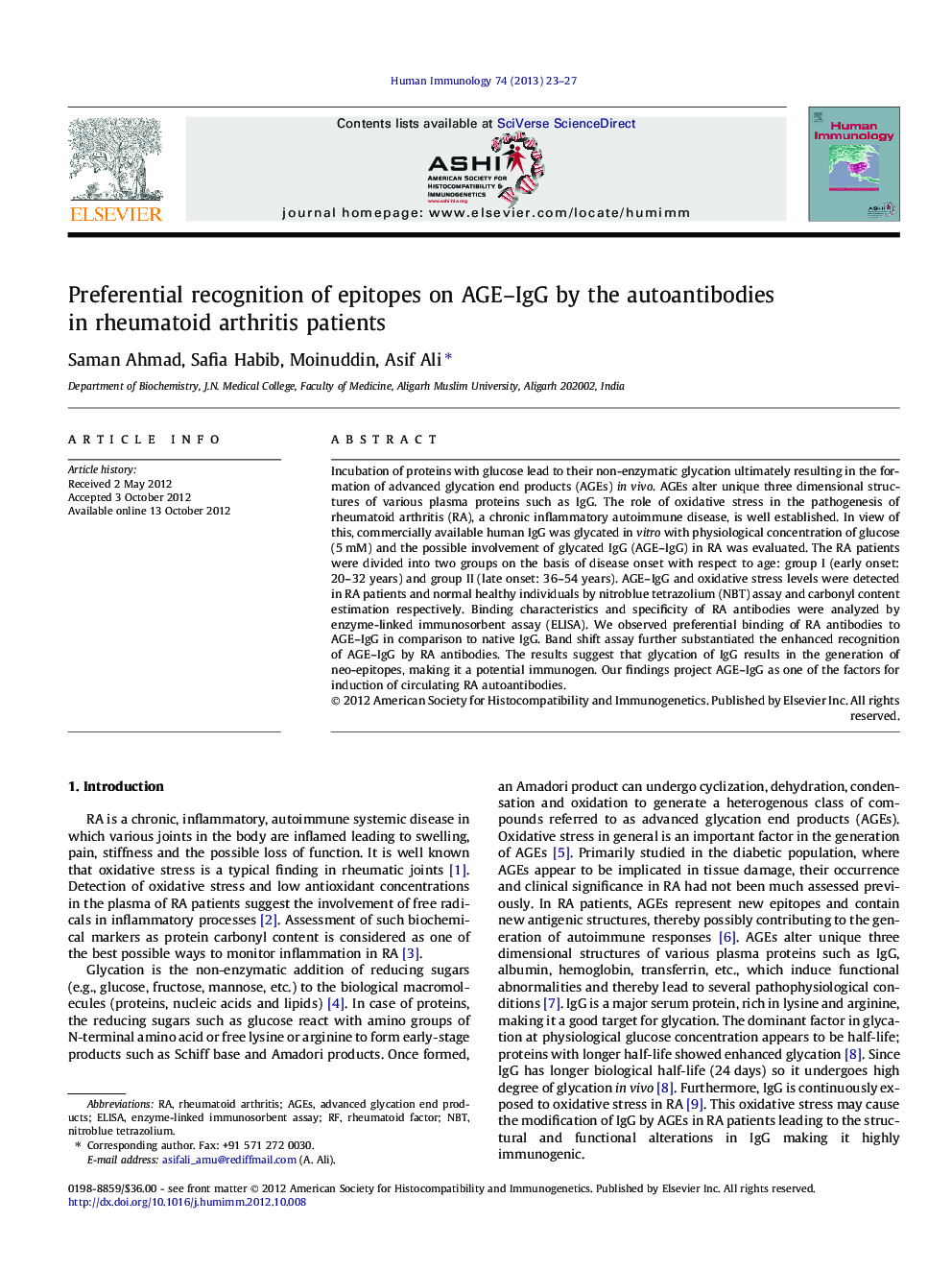| Article ID | Journal | Published Year | Pages | File Type |
|---|---|---|---|---|
| 3350795 | Human Immunology | 2013 | 5 Pages |
Incubation of proteins with glucose lead to their non-enzymatic glycation ultimately resulting in the formation of advanced glycation end products (AGEs) in vivo. AGEs alter unique three dimensional structures of various plasma proteins such as IgG. The role of oxidative stress in the pathogenesis of rheumatoid arthritis (RA), a chronic inflammatory autoimmune disease, is well established. In view of this, commercially available human IgG was glycated in vitro with physiological concentration of glucose (5 mM) and the possible involvement of glycated IgG (AGE–IgG) in RA was evaluated. The RA patients were divided into two groups on the basis of disease onset with respect to age: group I (early onset: 20–32 years) and group II (late onset: 36–54 years). AGE–IgG and oxidative stress levels were detected in RA patients and normal healthy individuals by nitroblue tetrazolium (NBT) assay and carbonyl content estimation respectively. Binding characteristics and specificity of RA antibodies were analyzed by enzyme-linked immunosorbent assay (ELISA). We observed preferential binding of RA antibodies to AGE–IgG in comparison to native IgG. Band shift assay further substantiated the enhanced recognition of AGE–IgG by RA antibodies. The results suggest that glycation of IgG results in the generation of neo-epitopes, making it a potential immunogen. Our findings project AGE–IgG as one of the factors for induction of circulating RA autoantibodies.
